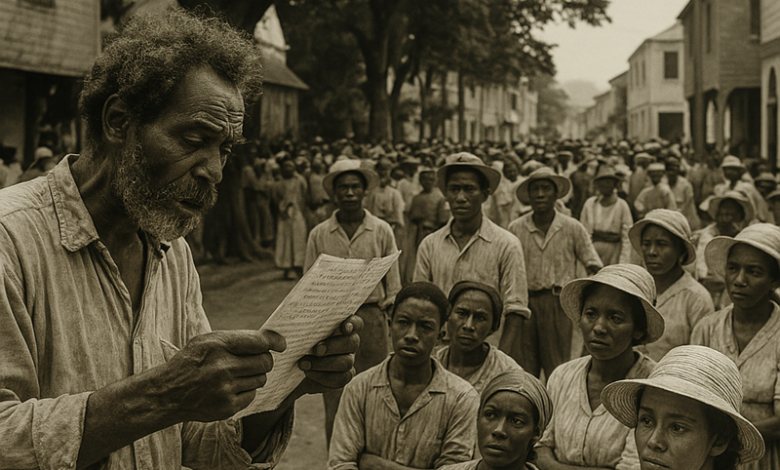Public Order Ordinance

The Public Order Ordinance, commonly referenced in Dominica, is legally recognized as the Public Order Act of 1954. Though the term “ordinance” reflects its colonial-era origins, it refers to the same statute that governs the regulation of public meetings, processions, and assemblies across the island. This law remains a key piece of Dominica’s legal framework for maintaining peace and order in public spaces.
Origins and Purpose of Dominica’s Public Order Ordinance
Enacted in 1954, during the period of British colonial rule, the Public Order Ordinance was designed to give local authorities the tools to manage public gatherings and prevent disturbances that could threaten civil peace. It addressed the growing need for formal protocols around demonstrations, political rallies, and mass meetings in public areas—especially in the context of rising nationalist movements throughout the Caribbean.
Although the law is now formally cited as the Public Order Act, references to it as the “Ordinance” persist, especially in older legal commentary, media coverage, and public discourse.
Key Provisions of the Public Order Ordinance
1. Permit Requirement for Public Gatherings
Organizers of any public meeting, march, or procession must apply for a permit from the Commissioner of Police or relevant authority. The permit ensures that public events do not obstruct roads, create security risks, or incite disorder.
2. Powers to Restrict or Prohibit Gatherings
The police or government may deny or restrict permits if they believe an event threatens public safety or order. In emergencies or heightened security concerns, authorities may issue blanket prohibitions on all public meetings within specified areas and timeframes.
3. Offenses and Penalties
Anyone who organizes or participates in an unauthorized public gathering may be subject to:
- Fines (increased under modern amendments)
- Imprisonment for up to six months
- Summary conviction, depending on the violation
The law also prohibits carrying offensive weapons at public events and empowers police to disperse unlawful gatherings.
4. Recent Amendments+
A notable update in 2017 increased penalties and strengthened enforcement mechanisms. Under SRO No. 5 of 2017, fines were raised to $10,000 for organizing or participating in prohibited events. This amendment clarified existing ambiguities and responded to new public order challenges.
Legal Debate and Constitutionality
The Public Order Ordinance has been challenged on constitutional grounds, particularly concerning rights to freedom of expression, assembly, and movement. In 2016, a group of claimants brought a case questioning the Ordinance’s alignment with the Constitution of Dominica, arguing it lacked safeguards against arbitrary enforcement. The debate remains ongoing, especially in a democratic context where civil liberties must be balanced against public safety.
Continued Use in Modern Governance
Despite its age, the Public Order Ordinance continues to be invoked during political tension, protests, or significant public events. Law enforcement routinely refers to its provisions to manage crowd control and issue advisories regarding political marches or demonstrations.
The Public Order Ordinance—legally known as the Public Order Act of 1954—remains an active and frequently cited part of Dominica’s legal landscape. Though rooted in colonial legislation, it continues to evolve in its application and remains central to discussions about civil rights, governance, and public order in modern Dominica.




